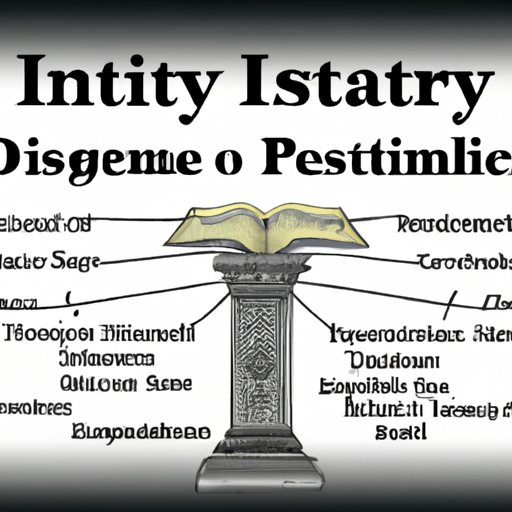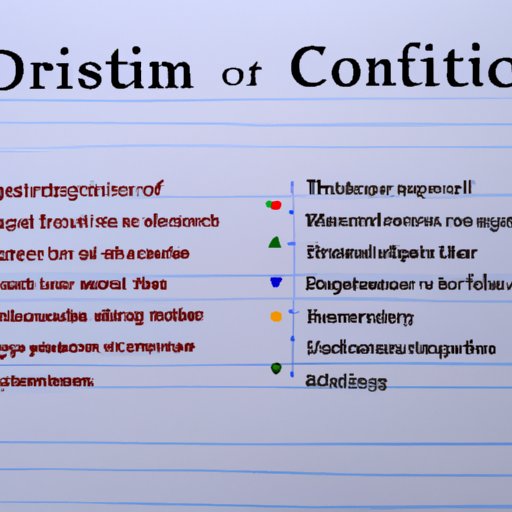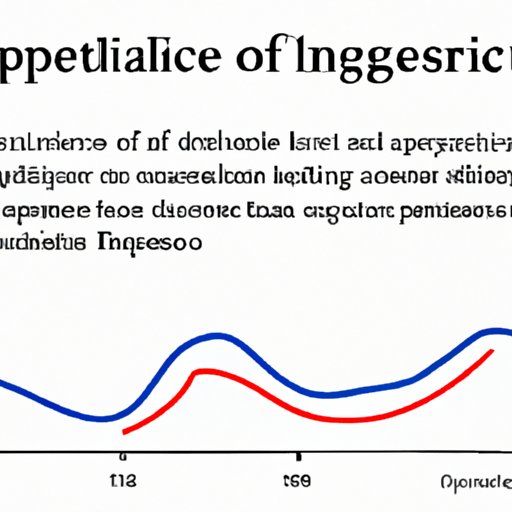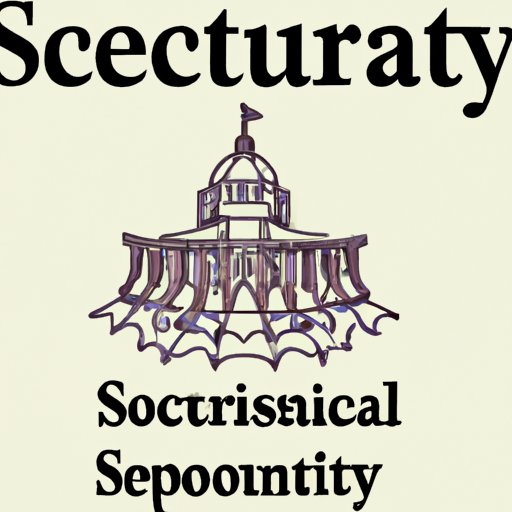Introduction
The concept of a “state” is an important one in political science. A state is a political entity that possesses a certain degree of sovereignty, or the ability to make and enforce laws without interference from other states. This article will explore what a state is in political science, including its definition, characteristics, types, role in political theory and international relations, and impact on policy and society.
An Overview of What a State is in Political Science
A state can be defined as an independent political community that is governed by a set of laws and policies. It has a population, territory, and is usually recognized as sovereign by other states. According to German sociologist Max Weber, a state is “a human community that (successfully) claims the monopoly of the legitimate use of physical force within a given territory.” In other words, a state is a political organization that has the authority to use force to maintain order and control over its people and territory.
Exploring the Characteristics of a State in Political Science
There are several key characteristics of a state in political science. The first is sovereignty, which is the power of a state to make laws and regulations without interference from other states. The second is government, which is the system of rules and institutions that govern a state. Third is the relationship between citizens and the state, which is based on principles of justice, equality, and respect for individual rights.
The concept of sovereignty is central to understanding what a state is in political science. As American political scientist Samuel Huntington explains: “Sovereignty is the central organizing principle of the modern state system. States are the principal actors in international politics, and the concept of sovereignty is the basis for their legitimacy.” In other words, a state must be recognized as sovereign in order to be considered a legitimate actor in the international system.
Examining the Different Types of States in Political Science
In political science, there are three main types of states: unitary, federal, and confederation. Unitary states are those in which all power is held by a central government. Federal states, on the other hand, are composed of several smaller units that share power with the central government. Finally, confederation states are made up of several completely autonomous states that agree to cooperate with each other for mutual benefit.

A History of the Development of the State in Political Science
The concept of the state has evolved over time. In ancient times, states were formed through conquest and the formation of large empires. In the Middle Ages, states emerged as a result of feudalism and the rise of monarchies. In modern times, states have become increasingly complex, with governments playing a larger role in the lives of citizens.
According to political theorist Hannah Arendt, “the emergence of the modern nation-state marked a decisive turning point in the history of political thought.” She argues that the rise of the nation-state was instrumental in creating the idea of citizenship, which is the legal relationship between an individual and the state. This relationship is based on the principle of equal rights and obligations, and it is fundamental to understanding the nature of the modern state.

Comparing and Contrasting the Role of the State in Political Science
The role of the state in political science is different depending on the context. In political theory, the state is seen as an instrument for achieving certain goals, such as protecting the rights of citizens or providing public goods. In international relations, the state is seen as a unit of analysis and is studied in terms of its interactions with other states.
Political theorist Thomas Hobbes famously argued that the state is necessary to ensure peace and order, and to protect citizens’ rights. He wrote that “the only way to erect such a Common Power, as may be able to defend them from the invasion of foreigners, and the injuries of one another, and thereby to secure them in such sort, as that by their own industry, and by the fruits of the Earth, they may nourish themselves and live contentedly.”

Investigating the Impact of the State in Political Science
The state has a significant impact on both policy and society. On the policy side, states create and implement laws and regulations that govern the behavior of citizens and businesses. On the social side, states provide services such as education, healthcare, and welfare that help to improve the quality of life for citizens.
In addition, the state plays an important role in international relations. States are often involved in diplomatic negotiations and alliances, and they play an important role in maintaining global peace and stability. As former United Nations Secretary General Kofi Annan said, “The state remains the cornerstone of international relations. It is the primary actor in a globalized world, and its role in addressing global challenges cannot be overemphasized.”
Conclusion
This article has explored what a state is in political science, including its definition, characteristics, types, role in political theory and international relations, and impact on policy and society. It is clear that the state is a complex phenomenon, and its importance in both domestic and international affairs cannot be overstated.
Further research should focus on exploring how states interact with each other in the international system, and how they work together to address global issues such as climate change, poverty, and conflict. Understanding the role of the state in political science is essential for understanding the current global political environment.
(Note: Is this article not meeting your expectations? Do you have knowledge or insights to share? Unlock new opportunities and expand your reach by joining our authors team. Click Registration to join us and share your expertise with our readers.)
